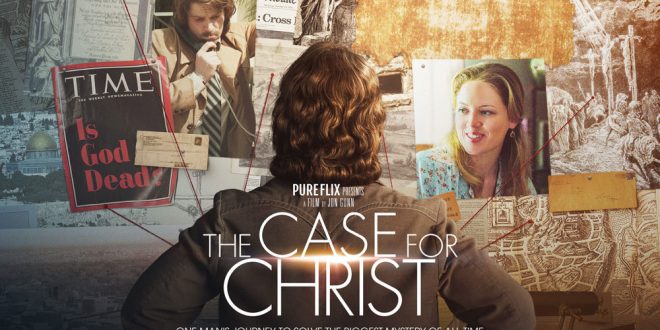Ragamuffin: Rich Mullins’ Homeless Heart (and ours)

Seventeen years ago, contemporary Christian music and the Church lost a unique man and a terrific songwriter. Many of us remember when Rich Mullins, the talent behind “Sing Your Praise to the Lord,” “Awesome God,” “My Deliverer,” and other treasured songs met his end on an Illinois interstate. It wasn’t the chariot of fire he’d prayed in one song God would give him, but he surely found a home at last for his stubbornly homeless heart.
This year, an independent film offers a glimpse at the man behind the music and shows why Rich has such an enduring impact on those who knew him, and on his industry, and on all of us who loved his work.
In “Ragamuffin,” Director David Leo Schultz introduces us to the son of an Indiana farmer who knows just one thing: He doesn’t belong anywhere. Hungry for approval and acceptance, Rich Mullins enrolls at Cincinnati Bible College. Although he still has no idea where he belongs, a lot of people—on witnessing his talent at the piano and behind the microphone—think that they’ve got a good idea.
Before long, Rich gets a call from Nashville. A record company producer tells him Amy Grant wants to cover one of his latest songs.
It’s his big break, and it eventually leads to collaborative albums and his own releases, featuring some of his best-known hits. But it also initiates a drawn-out head-butting match between Rich and his producer.
The Christian music industry, he finds out, has a formula. And little about Rich Mullins—whether it’s his melancholy lyrics, his grungy on-stage presence, or his confrontational homilies at concerts—fits that formula.
Rich also made a virtual second career out of challenging middle-class Christians to step out of their comfort zones.
“Christianity,” he tells an audience, “is not about building an absolutely secure little niche in the world where you can live with your perfect little wife and your perfect little children in your beautiful little house where you have no gays or minority groups anywhere near you. Christianity is about learning to love like Jesus loved and Jesus loved the poor and Jesus loved the broken.”
And Rich took his own lectures seriously enough to live by them. He wanted nothing to do with the fortune his music earned him, entrusting it all, instead, to his church and accepting only the average American’s salary.
But something deeper continued to gnaw at him. His lifelong uncertainty about his father’s love fuels doubts about whether God can accept and use him despite his failures. Locked in an ongoing struggle with anxiety and alcohol, Rich finds refuge in the writing of Brennan Manning, an ex-priest and author of “The Ragamuffin Gospel.” Manning reminds Rich, as he did thousands, that God’s love doesn’t depend on our good behavior. It’s unconditional. And grace is not only available for those ragamuffins who, like the tax collector in Jesus’ parable, beat their chest and beg God for mercy. It is intended for them.
This renewed confidence in forgiveness showed up in Rich’s music—nowhere more than in his final album, recorded on demo tapes just days before his death.
“The Jesus Record,” which was produced posthumously by band-mates and fellow Christian musicians, celebrates the life of Christ in fresh, quirky, and theologically profound ways. And like all of Rich’s music, it exalts the sense of longing in all of creation—and especially in homeless Christian hearts—that can only be finally fulfilled in the Savior’s love.
So many years later, it’s natural to ask: why revisit this story of an artist whose last album predates iPods? As evangelicals puzzle over our role in a changing culture, the story of a Christian singer who never quite fit in offers one answer. Like Rich Mullins, if we feel out-of-place in this world, maybe it’s a good sign. Maybe—as Manning thought—the ragamuffins who know they’re homeless are the ones closest to God’s doorstep.
— by John Stonestreet
Stonestreet is the Director of Strategic Partnerships for the Chuck Colson Center for Christian Worldview and is heard on Breakpoint, a radio commentary that is broadcast on 400 stations with an audience of eight million.
Copyright© 2014 Prison Fellowship Ministries. Reprinted with permission. BreakPoint is a ministry of Prison Fellowship Ministries





